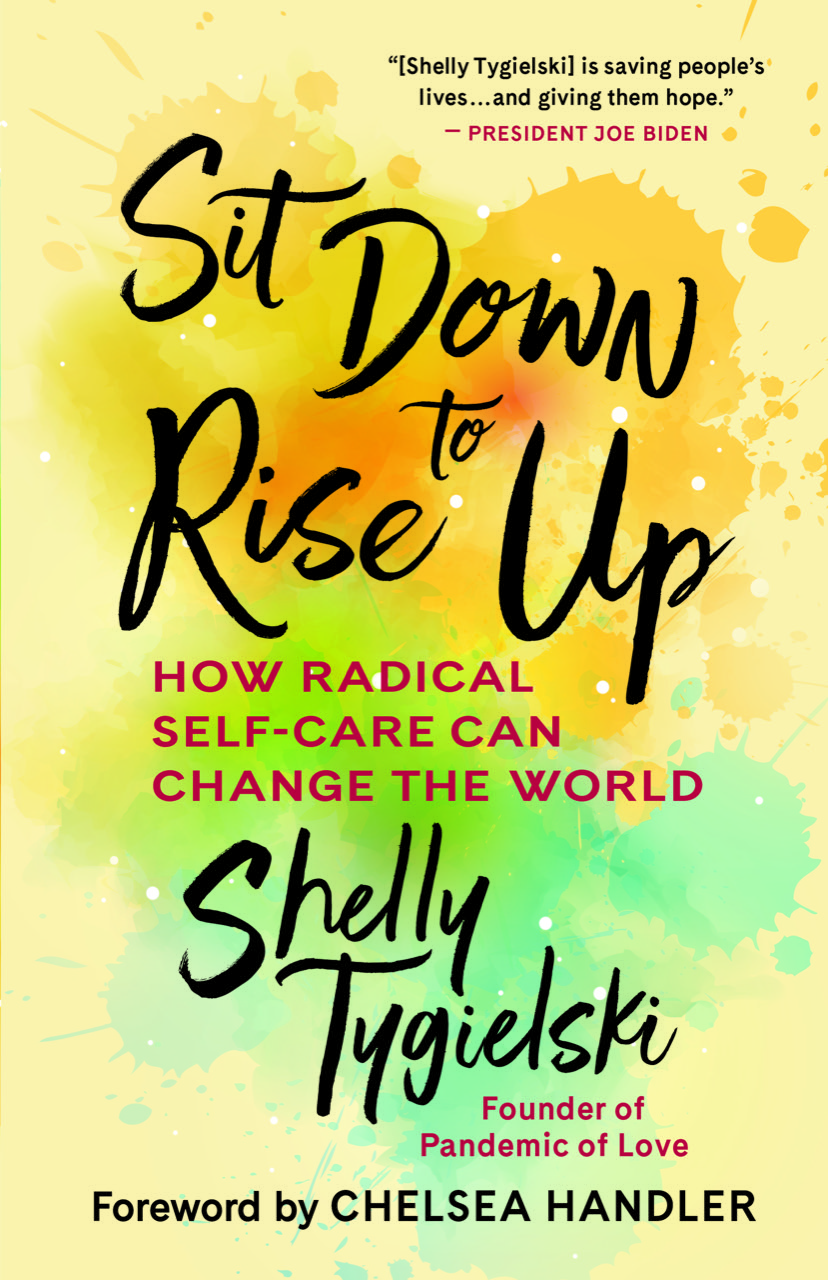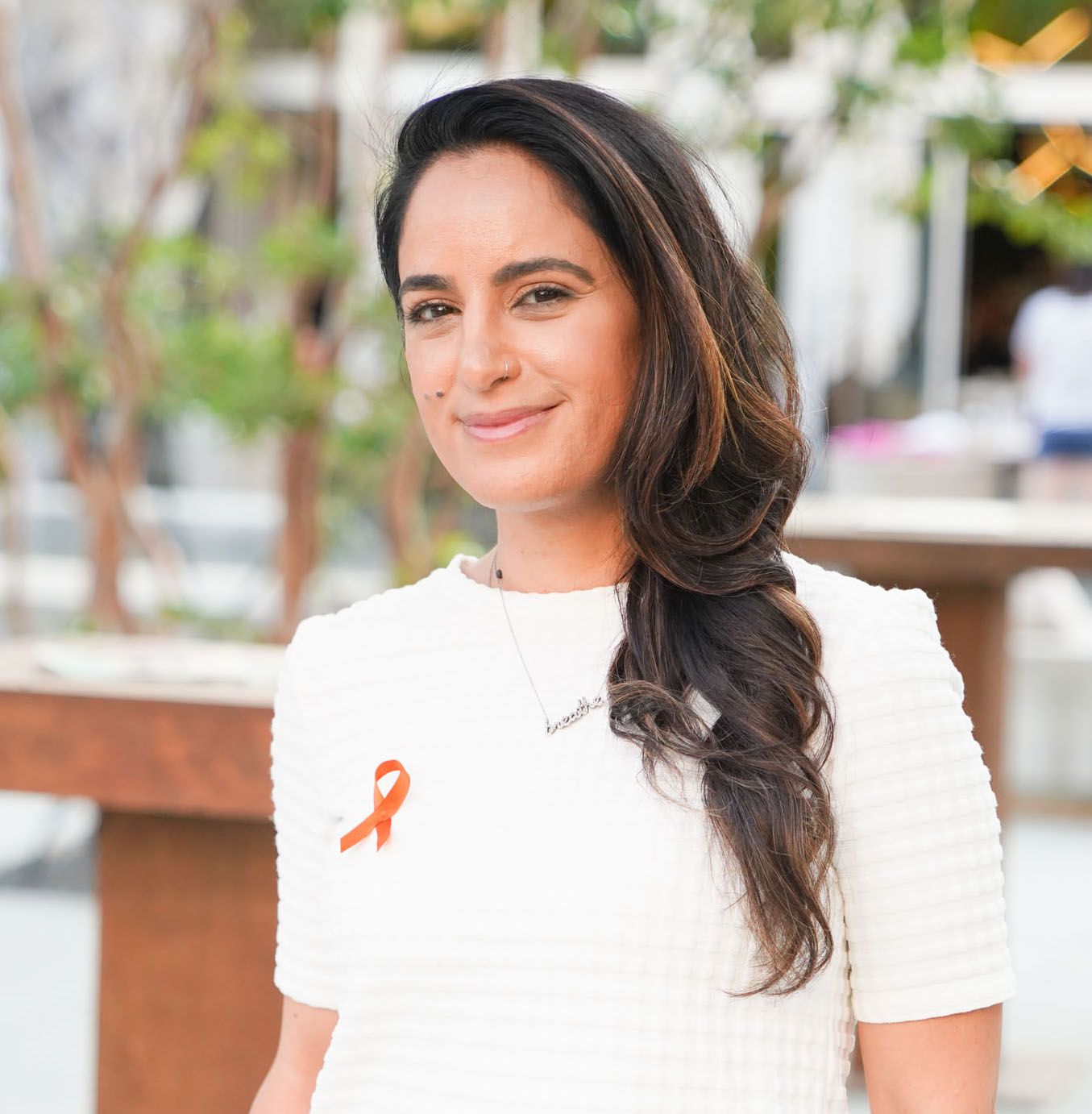While the practice of self-care is most often touted for its profound mind, body, and spirit benefits, in Sit Down to Rise Up: How Radical Self-Care Can Change the World, author and Pandemic of Love founder Shelly Tygielski shows that self-care can also be a powerful tool for spurring transformative collective action. We hope you’ll enjoy this excerpt from the book.
# # #
It bears repeating: We cannot truly show up for others if we do not show up for ourselves first. There is an undeniable and intricate connection between our inner work and the outer world.
But also, just as importantly, our personal example of showing up for ourselves can ignite and inspire others to do the same in their own lives. And part of showing up means taking the risk to be part of others’ lives. Just being present for someone is a deeply divine act, something that I believe is the ultimate gift we were made to share with others.
Like making life changes, this happens in ways big and small. I am a big fan of incremental change, of “eating the elephant one bite at a time.” Showing up for ourselves can be as simple as arriving on time — or waking up on time. It might mean effective communication when plans change, things come up, and life happens. It might mean standing up for ourselves with the sole purpose of being understood, not validated. This is sometimes described as being in “integrity with oneself.” If we are clear on our values and intentions, we can keep ourselves more balanced despite what is going on around us.
Those in our immediate community — friends, family, coworkers, and others whose lives intersect with ours — see what we do, and this alone can directly affect them. But more importantly, how we show up for and take care of ourselves affects our ability to show up for others. This includes how we have worked through our intergenerational trauma and “the way we grew up.” This can affect our interactions, our ability to collaborate and compromise, what our “nonnegotiables” are, and how we hold ourselves and others accountable.
We have been affected by others and external circumstances since the day we were born, and these things influence the goals we have for ourselves and how we relate to the people in our life. For example, as a child, when we broke a rule or went back on an agreement, what were the ramifications? If this involved hurtful or unhealthy behaviors that still influence us as adults, then we risk repeating these harmful patterns with others. If we aren’t capable of taking care of our personal needs first, this can affect the kinds of relationships we create and the types of commitments we make. If we struggle to connect with others in healthy ways, it will be difficult to show up in support of them in the ways they need. For instance, if we haven’t worked through our own stuff, we are more likely as adults to project those unresolved issues onto others. In other words, we might think we are showing up, but we aren’t actually open to what another person is going through. To show up for someone else means, as much as possible, coming from a curious, seeking-to-understand place. This can be really difficult to do if most of our emotional and physical energy is focused on our own needs and problems. To some extent, we always have personal issues to deal with — life is always happening — so when showing up for others, always check in with yourself first, figure out what is or is not within your ability to do, adjust what you want to commit to, decide if you must let something go, and as needed, verbalize and explain what is going on for you and what you see going on with the other person. Being honest about our limits is also part of showing up.
Something interesting happens when we do all of this “showing up,” tending first to ourselves and then directly showing up for immediate community members: We heal ourselves, which in turn helps to heal others, whose lives we touch and impact, which in turn empowers them to do the same for others. This helps us build and reinforce those true communal safety nets that set the stage for cultural and societal shifts, for movements to occur.
The call to action is this: How can you hold yourself accountable to show up as the best version of yourself in as many moments as possible? Can you be fully present to the presence of others, thereby strengthening your relationship with them? Can you draw a correlation between your interaction with others and their future interaction with the people they come into contact with? The choice is ours in each and every moment, but deciding becomes easier when our values are clear.
Shelly Tygielski is the author of Sit Down to Rise Up and founder of the global grassroots mutual aid organization Pandemic of Love. Her work has been featured by over 100 media outlets, including CNN Heroes, The Kelly Clarkson Show, CBS This Morning, the New York Times, and the Washington Post. Visit her online at http://www.shellytygielski.com.



